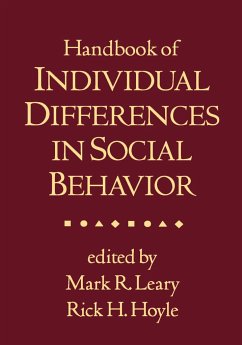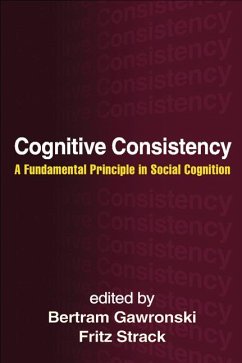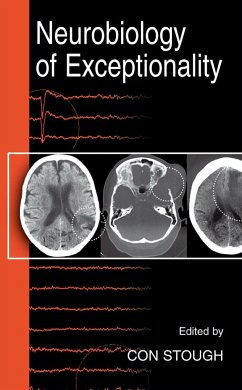
Biology of Personality and Individual Differences
Versandkostenfrei!
Versandfertig in über 4 Wochen
88,99 €
inkl. MwSt.

PAYBACK Punkte
44 °P sammeln!
This is the first book to provide an overview of current research using cutting-edge genetic and neuroimaging methods in the study of personality. Integrating compelling lines of inquiry that until now have largely remained disparate, the volume brings together leading investigators from personality psychology; clinical psychology and psychiatry; cognitive, affective, and behavioral neuroscience; and comparative psychology. Coverage includes the structure of personality and its mapping onto biology, genetic markers for individual differences, vulnerability to psychopathology, sex differences, ...
This is the first book to provide an overview of current research using cutting-edge genetic and neuroimaging methods in the study of personality. Integrating compelling lines of inquiry that until now have largely remained disparate, the volume brings together leading investigators from personality psychology; clinical psychology and psychiatry; cognitive, affective, and behavioral neuroscience; and comparative psychology. Coverage includes the structure of personality and its mapping onto biology, genetic markers for individual differences, vulnerability to psychopathology, sex differences, age-related processes, and functional neuroimaging approaches.












